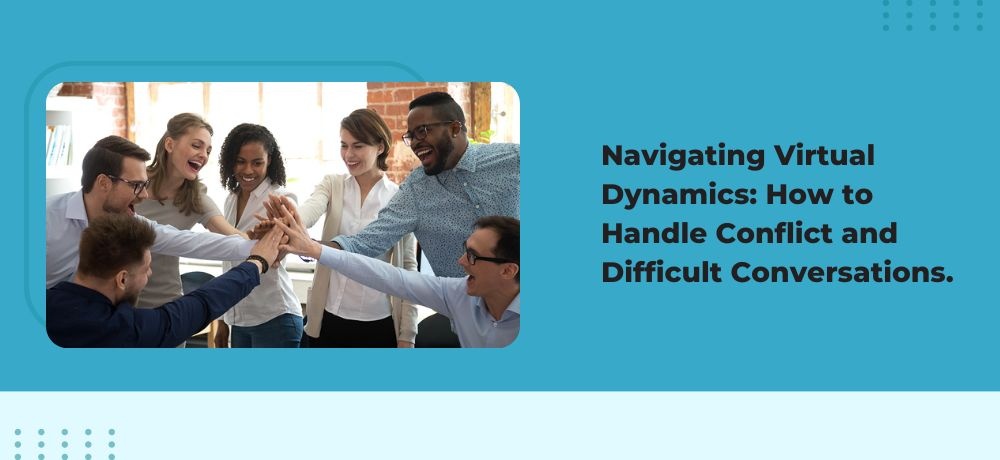In the world of nonprofit organizations, the pursuit of positive change is unwavering. However, there's a vital lesson that often gets overlooked: the art of saying "no." While nonprofits are driven by their mission to make a difference, strategic decision-making requires the discernment to decline certain opportunities, collaborations, or initiatives. Let's explore why learning when to say "no" is a strategic imperative for nonprofit success.
Nurturing Board Member Engagement: Strategies for Active Participation in Nonprofit Board Meetings

A thriving nonprofit board is one where engagement is more than just a buzzword – it's a driving force behind the organization's success. Nurturing board member engagement requires intentional efforts to foster open communication, empower through leadership opportunities, and create engaging meeting formats. By leveraging the expertise, passion, and commitment of each board member, nonprofits can chart a course for sustainable growth and meaningful impact in their communities.
CLICK HERE TO READ THE FULL ARTICLE »
The Importance of Defining Roles and Responsibilities within Nonprofit Boards and the Executive Director

Nonprofit organizations play a vital role in addressing societal needs and driving positive change. To effectively fulfill their missions, nonprofits rely on the collaboration and strategic guidance of their boards and executive directors. However, to ensure smooth operations and maximize impact, it is crucial to define the roles and responsibilities of both the board and the executive director.
CLICK HERE TO READ THE FULL ARTICLE »
Facilitating Effective Board Meetings Series: Developing a Clear Agenda

An effective board meeting starts with a clear agenda that sets the tone for focused discussions, decision-making, and progress within a nonprofit organization. A well-designed agenda ensures that board members are prepared, goals are defined, and time is used efficiently. In this blog post, we will delve into the importance of developing a clear agenda and provide practical tips to create an agenda that facilitates productive board meetings for nonprofit organizations.
CLICK HERE TO READ THE FULL ARTICLE »
Engaging Stakeholders: The Key to Successful Nonprofit Strategic Planning

Effective strategic planning is critical for nonprofit organizations seeking to make a meaningful impact in their communities. However, the success of a strategic plan heavily depends on the active involvement and engagement of stakeholders. Let's explore the importance of stakeholder engagement in the nonprofit strategic planning process and highlight key strategies for fostering collaboration, inclusivity, and ownership.
CLICK HERE TO READ THE FULL ARTICLE »
Facilitating Effective Board Meetings Series: Empowering Voices Around the Table

As a leader and board chair, one of the essential responsibilities is to foster an environment where everyone's voice is heard and valued during meetings. By encouraging active participation and contributions from all attendees, we can tap into the collective wisdom, diverse perspectives, and innovative ideas that lie within our team.
CLICK HERE TO READ THE FULL ARTICLE »
Why Hire a Facilitator? The Benefits of Engaging a Facilitator for Strategic Planning

Strategic planning plays a vital role in guiding nonprofit organizations towards achieving their mission and maximizing their impact. When considering who should facilitate the strategic planning session, it's worth exploring the benefits of hiring a nonprofit strategist. Let’s explore the advantages of engaging a nonprofit strategist to facilitate the strategic planning process.
Navigating Virtual Dynamics: How to Handle Conflict and Difficult Conversations

The rise of remote work and virtual communication has brought about new challenges for leaders, particularly when it comes to handling conflict and difficult conversations. In a virtual setting, it can be easy for misunderstandings to arise and for emotions to run high. However, with the right strategies and tools, leaders can navigate virtual dynamics and handle conflict and difficult conversations with ease.
Not All Nonprofits Are Created Equal: Unveiling the Distinctions Between Charitable Organizations, Professional Associations, and Chambers of Commerce

When people think of nonprofits, charitable organizations often come to mind. However, the nonprofit sector encompasses a broader range of entities, including professional associations and chambers of commerce. While all three types share a nonprofit status, their missions, structures, and functions differ significantly. Let’s delve into the distinctions between charitable organizations, professional associations, and chambers of commerce, shedding light on their unique roles within the nonprofit landscape.
Navigating Success: The Board and Executive Director as the Crew of a Nonprofit Organization's Ship

The analogy of a ship beautifully captures the roles of a board and an executive director in guiding a nonprofit organization towards its goals. Just as a skilled captain and crew work together to navigate the seas, the board and executive director collaborate to chart the course of the nonprofit. By fostering effective communication, collaboration, and shared vision, they can overcome challenges, leverage opportunities, and ensure smooth sailing towards making a positive impact. When the board and executive director function as a well-coordinated team, the nonprofit can harness the full potential of its mission, benefiting the communities it serves. At Profound Leadership, we specialize in empowering nonprofit organizations by strengthening the bond between boards and executive directors. If you're eager to learn more about our services and how we can support your organization's journey, please don't hesitate to contact us, www.profoundleaders.com.

